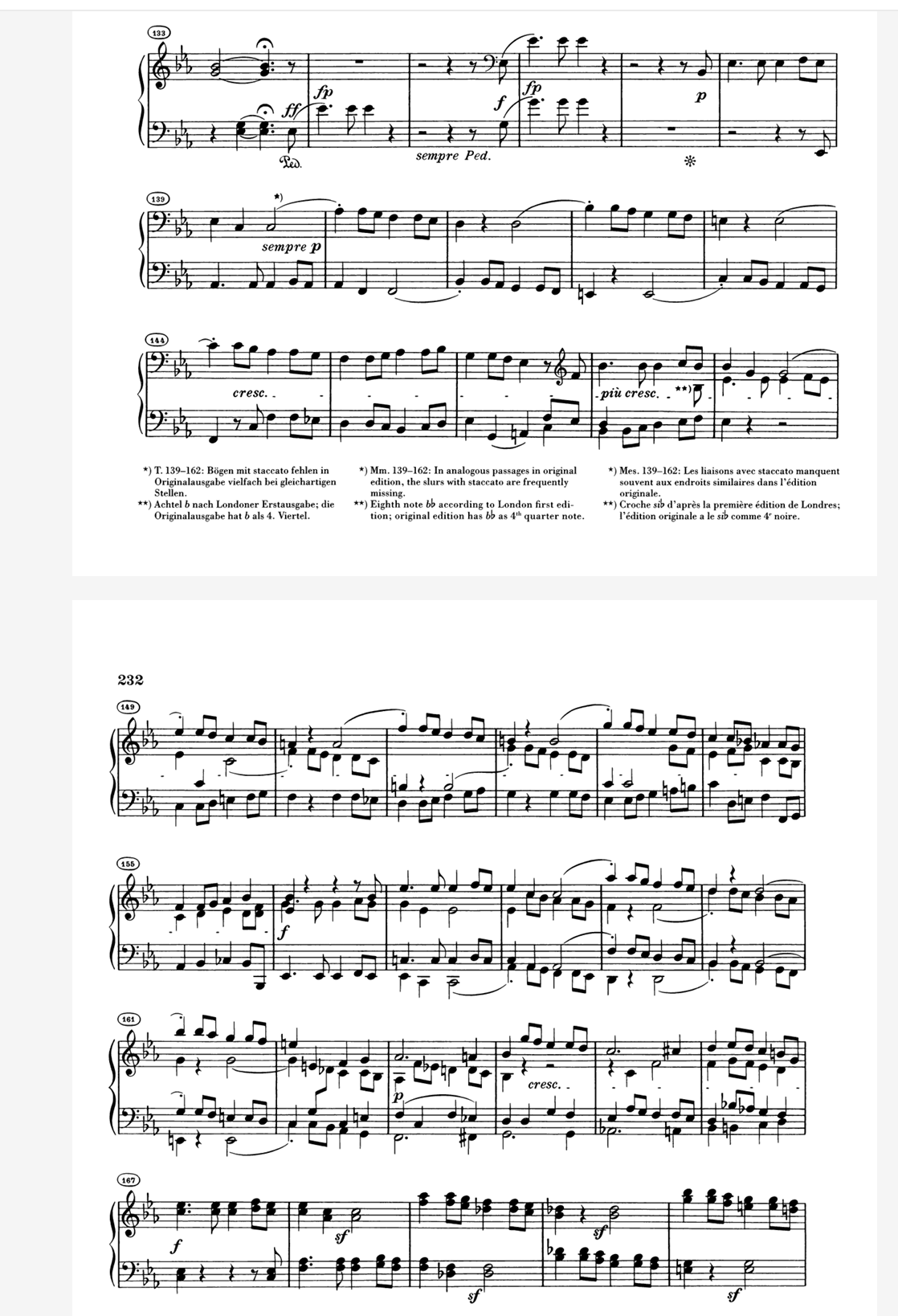No Going Back: Beethoven’s Lesson for Human Rights

The same momentum that propels his music must propel justice — onward, always onward.
Exposition
Few composers give such an overwhelming impression of momentum as Beethoven. His music seems to surge forward with its own inner force, as though time itself is being pulled along by the sheer urgency of his imagination. Even moments of apparent calm are rarely still; there is almost always a current running underneath, propelling the music onwards.
This sense of drive has fascinated listeners for more than two centuries. Why does Beethoven’s music always feel as though it is striving, never retreating?
The question is not only musical. It speaks to a deeper truth about how progress itself works. Human rights movements resemble Beethoven’s symphonies in this respect. They may begin from fragile motifs, face setbacks and resistance, yet once in motion, they cannot credibly be unwound. Just as Beethoven’s musical logic resists regression, the moral logic of rights demands that societies move forward, not back.
So here is our theme: Beethoven’s forward-driving music as a metaphor for the irreversibility of human rights.
Development
Beethoven’s momentum comes from a handful of characteristic techniques.
First, rhythm. He often relies on short, insistent rhythmic cells that repeat and transform. The opening of the Fifth Symphony is the obvious example: four notes, endlessly reshaped until they become the engine of an entire movement. Human rights campaigns often work in the same way. A simple demand, repeated without rest, reshapes the atmosphere. “Votes for women.” “Black lives matter.” “Marriage equality.” "Trans rights are human rights." Words that begin as protest become national motifs, impossible to ignore.
Second, harmony. Beethoven loved to delay resolution. Where Mozart might settle quickly into a comfortable cadence, Beethoven stretched tension until the release felt like liberation. The slow introduction to the Seventh Symphony demonstrates this — the long suspense makes the eventual rhythm erupt with unstoppable energy. Rights movements often follow the same path. Justice is deferred, sometimes for generations. Yet when it finally arrives, it is all the more powerful for the wait.
Third, motivic development. Beethoven seldom repeats an idea unchanged. He reshapes it, evolves it, presses it forward. Human rights progress has the same quality. A principle once declared — the equality of all persons — becomes the seed for later struggles. Abolition, suffrage, decolonisation, LGBTQIA+ recognition: each is a variation on the same theme, unfolding across generations.
But Beethoven was not only a craftsman of sound. He was a political composer, living at the hinge of history when the French Revolution’s ideals promised to reorder Europe. His Eroica Symphony was originally dedicated to Napoleon as the embodiment of those ideals. When Napoleon crowned himself Emperor, betraying liberty, Beethoven furiously tore away the dedication. The hero of the symphony was no longer Napoleon — it was liberty itself.
That episode shows the danger of regression. When liberty is betrayed — when hard-won rights are stripped away — the effect is not neutral. It is like a false recapitulation in music: jarring, incoherent, destructive. A symphony cannot simply rewind without breaking its arc. Nor can a society roll back rights without destabilising the integrity of democracy itself.

Recapitulation
We return to our opening theme: forward momentum as necessity. Beethoven’s symphonies show that direction is everything. They may not move quickly, but they move with inevitability toward resolution. Human rights follow the same law. Once people have been recognised as equal, to retreat from that recognition is to break the coherence of justice itself.
In this light, Beethoven’s music can be heard almost as moral allegory. The music presses forward because it must. Rights expand because they must. To stop that arc midway, or worse, to turn it backwards, is to betray the very logic of freedom.
Coda
Beethoven’s codas are famous for their scale and energy. They do not merely conclude; they drive the point home with renewed force, as though victory itself still needs to be secured. The coda to the Fifth Symphony is practically a second development, hammering home triumph until there is no doubt left.
Human rights victories also require codas. Progress must be consolidated, defended, and extended. The first legal recognition, the first repeal of injustice, is not the end. If anything, it is the moment when vigilance becomes most necessary.
We live in unsettled times, when hard-won liberties are questioned, and minorities face renewed hostility. Beethoven reminds us that progress is not optional comfort but driven necessity. Forward motion is the essence of coherence — in music, in justice, in freedom. His symphonies teach us that once the theme of liberty is sounded, it must be developed, recapitulated, and carried forward to resolution. There can be tension, there can be waiting, but there can never be retreat.
Just as Beethoven would not allow his music to turn back, so too must we insist: human rights must always drive forward.
(This essay is in a kind of sonata form as Beethoven was very meta-level!)
